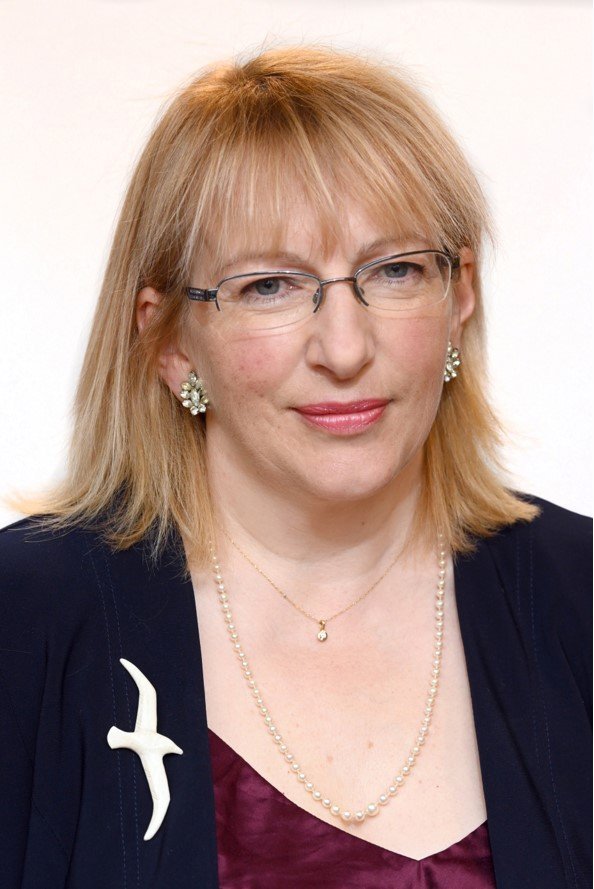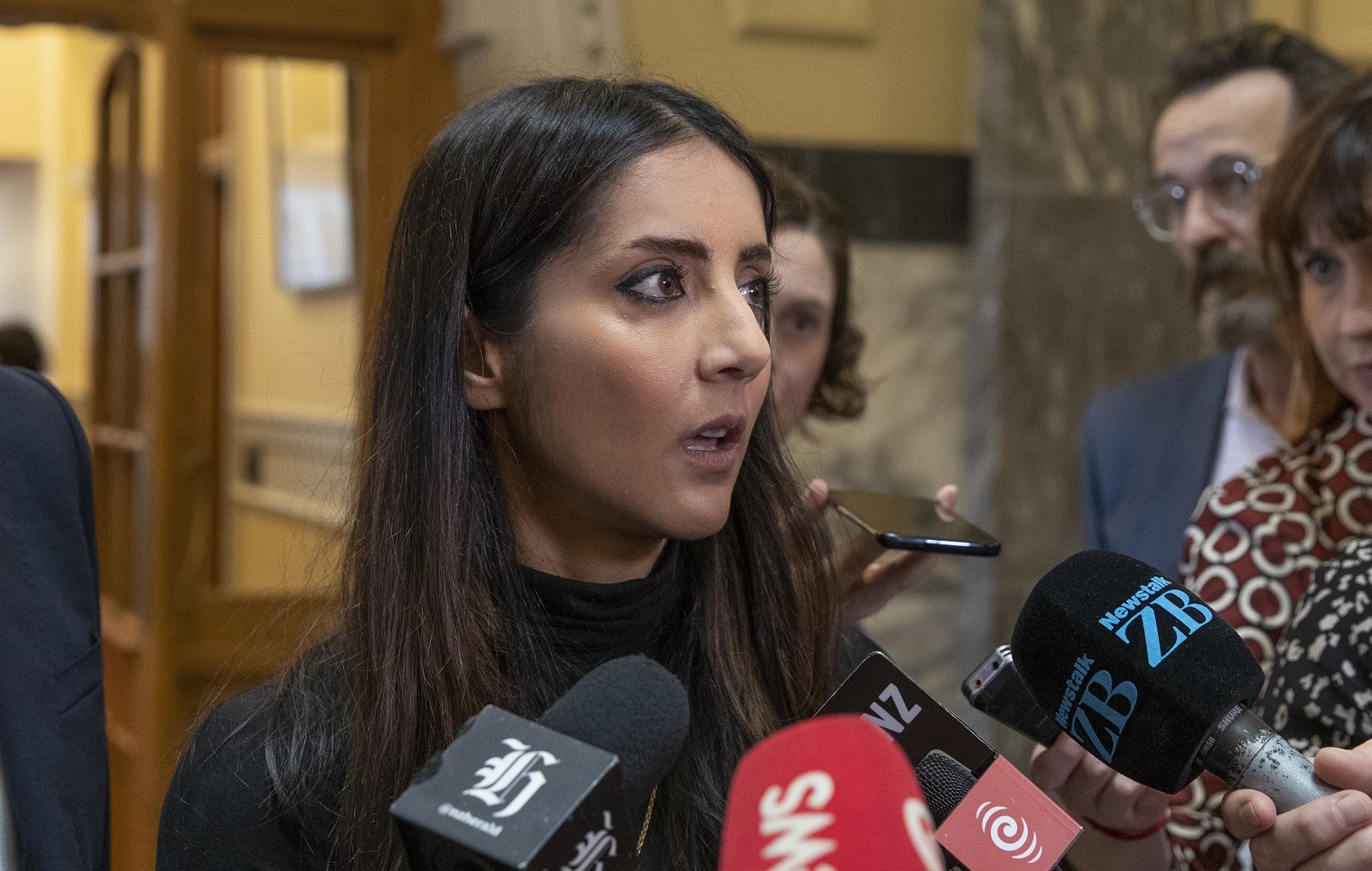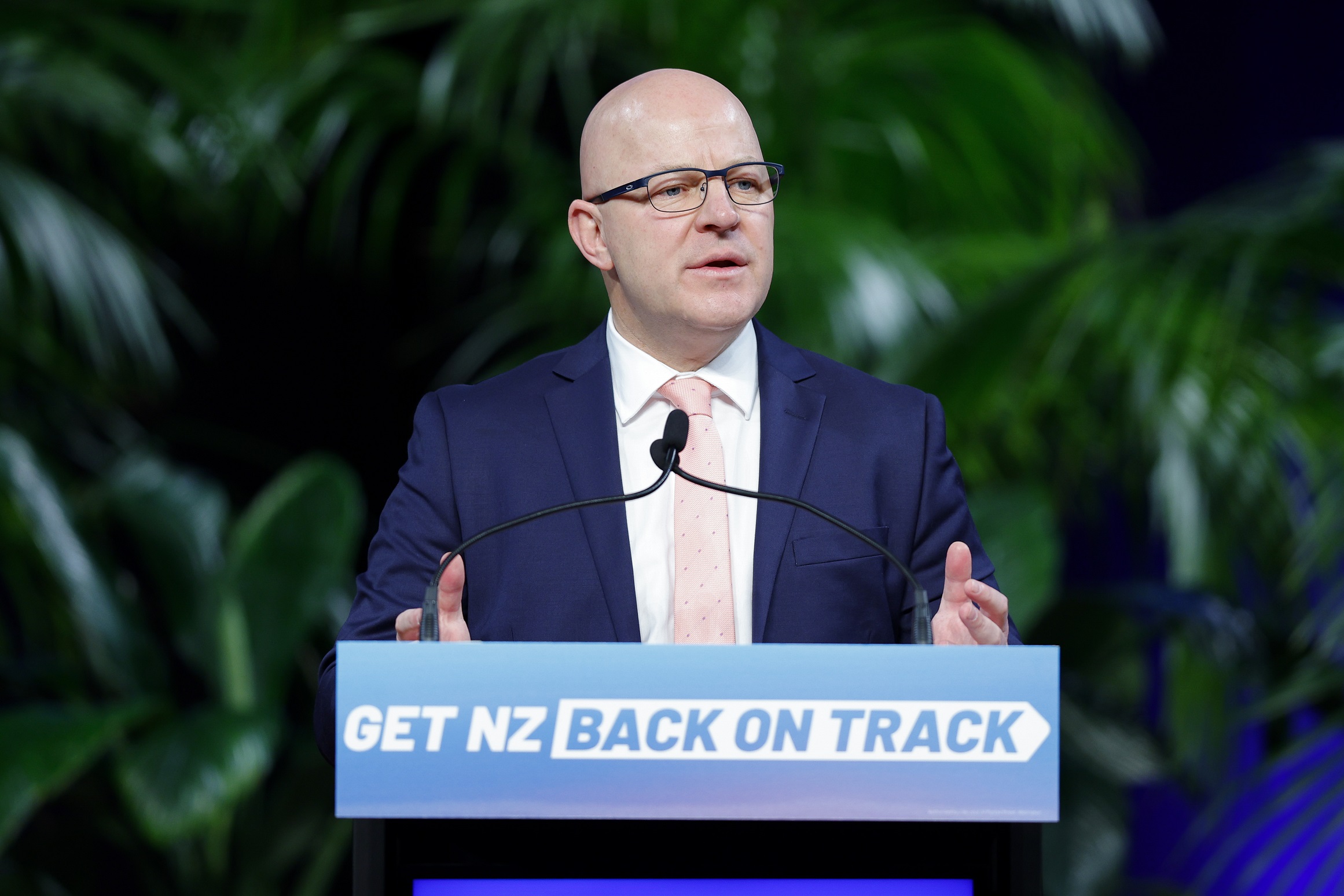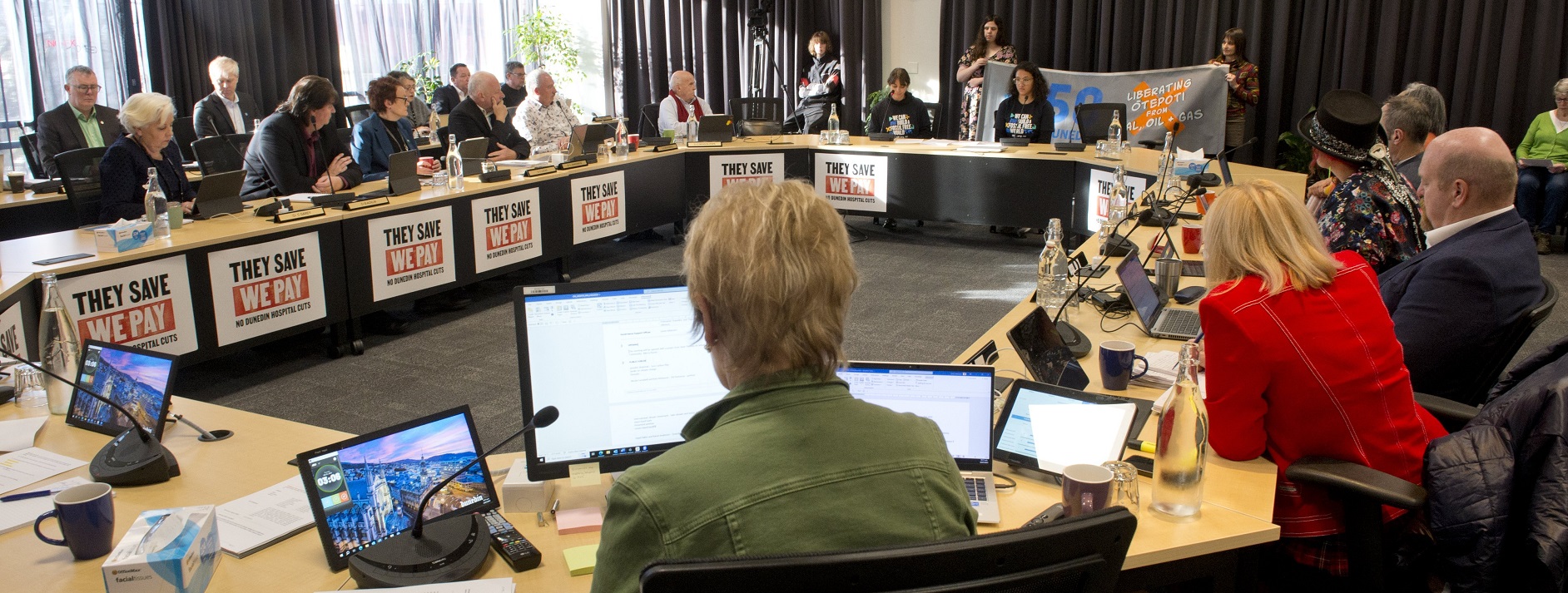
Even now, months later, the fallout from a racist remark leaves former Dunedin deputy mayor Sophie Barker queasy.
"I actually didn’t go out of the house for a couple of weeks and I wasn’t going to come back to council — I was going to resign. It was so hard. I actually still feel sick talking about it."
Dunedin City councillor Barker is referring to the debacle sparked last winter when Strath Taieri Community Board chairman Barry Williams made racist comments to a hotel worker in Middlemarch.
Dunedin Mayor Jules Radich then told Radio New Zealand that Mr Williams’ comments were "a relatively minor thing" and let slip other details from a publicly excluded council meeting, which led to the woman being identified.
Barker and Cr Jim O’Malley laid a code of conduct complaint against Radich for bringing the council into disrepute. Barker subsequently resigned as deputy mayor, saying she could no longer work closely with the mayor.
Barker then laid another conduct complaint, against Cr Carmen Houlahan, who had barraged her with eight missed calls in quick succession and 17 insistent text messages after the complaint against the mayor.
An independent investigator upheld both grievances. Radich and Houlahan have since apologised.
Sitting in a Stuart St cafe, Barker tells The Mix how difficult the experience has been and how toxic some of the feedback was. She raises wider questions about the behaviour of local government representatives and the impact on mental health, saying she used a counselling service after the unpleasant incidents.
"That was really helpful, because I just got myself in such a swirling mess because of everything that was being said about me. I think that’s how people go down that road to bad mental health — you start to look at all of these vicious things online and then you start questioning yourself and whether you can do the job.

The Weekend Mix approached Cr Houlahan but she declined to comment.
Barker says even with a background in the hospitality sector — "hospo can be brutal" — she was surprised at some of the behaviour she saw when starting as a councillor in 2019.
"One of the things I stood on was I wanted us to have a better council and part of that is the way we treat each other. I’d worked in a professional capacity in private enterprises and then, coming into council, it was just a playground, a vicious playground. I was really shocked.
"The staff are very professional but it was some of the other councillors. It’s a challenge when people have been in council for so long, or been in politics for so long. I think they develop a set of behaviours that they can get away with because, you know, we [only] have our code of conduct.
"But it isn’t even a wet bus-ticket."
In the wake of Green Party MP Golriz Ghahraman’s resignation following shoplifting allegations, the mental health of our elected representatives, and the unacceptable behaviours towards them and among them, are in the spotlight.
For many of us, what amounts to bad behaviour in the workplace isn’t anywhere near what it used to be, thank goodness.
In the old days, not more than a couple of decades ago, the boss or the workers’ top dog could pretty much get away with saying whatever they wanted and behaving however they liked. Bullying and harassment of all kinds were rife in the workplace and were either ignored or accepted as part of the culture, and the targets often told to toughen up.
By the start of this century, there was a gradually growing awareness of the damage being done to people’s mental health and self-esteem by all forms of bullying, including victimisation, sexism, racism, homophobia, ageism and exclusion. That sparked moves to ban workplace bullying, led by universities, schools and government departments, and then followed by many privately-owned businesses.

Ironic that Parliament, which has championed such improvements, appears to be one of them. In this most adversarial of workplaces, the conduct of MPs in the House frequently appals, especially during the confrontational Question Time. Visitors to Parliament often comment along the lines that children in the school playground behave better.
It’s a place of petty, nasty jealousies, artfulness and ambition, where media can be intent on finding those career-defining or career-ending "gotcha" moments, and which generates much toxic social media comment for MPs, vile abuse and even death threats.
Feral behaviour is not limited to central government. The chambers of local councils are also home to representatives behaving badly, and much personal ill-treatment. Members of the public with grudges and axes to grind have far easier access to their councillors than MPs and are able to shower them with vitriol with less difficulty.
The pressures of public office are even greater on women and people of diversity.
Former Dunedin South Labour MP and cabinet minister Clare Curran had her own battles with poor mental health and post-traumatic stress disorder while in Parliament. Commentators say it was clear she was maliciously targeted by some in the National Party Opposition and members of the Press Gallery.
Curran did not want to relive those experiences and pointed The Mix to her no-holds barred valedictory in August 2020, in which she addressed the gallery, saying "politicians should be held accountable, but we are not prey".
"I made a public spectacle of myself in this House," she said in the valedictory, "which was portrayed in a way that is the stuff of our worst nightmares. I made mistakes. I paid a price. I was targeted. I’ve discussed the impact that this had on me.
"And, yes, there was a moment when I counted the number of sleeping pills I had. Thankfully, I sought help instead. I’ve recently called out the behaviour in our Parliament and described our political culture as toxic, for our political system is sick, and we all know it."
She doubted the adversarial, centuries-old Westminster system was still fit for purpose in New Zealand and said "for a progressive country, highly respected in the world, we practise this system, in my view, in an immature and destructive way".

Curran made valid points in her last speech in Parliament. Perhaps this problem with those who have different or new ideas, this predilection to make it personal and bring down the person instead, reflects New Zealand’s immaturity and difficulty with tall poppies (unless they are sportspeople)?
Question Time is an especially provocative, and often theatrical, occasion in the arena of Parliament.
The Mix asked Speaker of the House Gerry Brownlee if it might be a good place to start with pulling back on the belligerence and belittling of others.
Brownlee said he would not comment on the workings of Parliament or on Question Time specifically.
Clinical psychologist Dougal Sutherland, of Umbrella Wellbeing, agrees the essence of the Westminster system is disagreement and confrontation. He believes Question Time could be made less fractious and less personal.
"It needs a cross-party agreement around it, that you are going to play the ball and not the person. I don’t think that would be impossible.
"This is a time for political leaders to show leadership in this, and notice that the way they interact can sometimes have a detrimental effect on others.
"There could also be more assistance provided, particularly for new MPs and ministers, around how they manage people. MPs are often elected, and ministers appointed, with little management experience. There’s an art to managing people well — I’m thinking more in terms of how they treat their staff."
National MP for Waimakariri, Matt Doocey, is New Zealand’s first dedicated minister for mental health.

"I don’t think our work environment is unique. A national conversation that’s going on around New Zealand at the moment is understanding better how our work environment impacts on our mental health, and the reason one person can have a career in politics for 20 or 30 years and succeed, and another person enters politics and leaves after one term and struggles.
"What we’re realising is people’s resilience and ability to manage and cope with stress is very different. How do we make workplaces less stressful, and also how do we build resilience so people are able to manage that stress?"
Parliamentarians have always struggled with mental health issues, but there was a huge stigma about it in the past, he says.
"For the fear that if you talked about it, you might be locked up in an asylum. Mental health was locked away, and what that meant was behind closed doors there was a lot of physical and domestic violence, alcohol use, suicide, that people didn’t talk about.
"In New Zealand we have gone a long way towards breaking down the stigma of that, and people are more open to talking about their mental health needs and their mental health issues."
There is now much better understanding of mental health issues in Parliament and acceptance that reducing absenteeism and promoting a productive work environment leads to success and better team morale.
The toxicity which comes with some social media has made things worse for politicians, Doocey says.
"I think I’m one of the very few members of Parliament or ministers that’s actually not on Twitter. I don’t think it’s good for my personal mental health.
"The rise of social media exposes people to some very detrimental behaviour and commentary, which I think again impacts on people’s stress levels and their own mental health.
"So, what’s happening in Parliament around the impact of people being trolled and having people who anonymously leave very threatening messages and demeaning messages, is actually a representation of unfortunately what is happening out there in New Zealand."

"It is about the battle of ideas. And the way we do that is through debates, so naturally [it appeals to] people who enjoy a good debate and the ability to propose ideas and take feedback on those ideas as well. The adversarial system in Parliament ... is how politics works."
Barker wonders if the pressures and potential loneliness of being a councillor are in some ways worse than for an MP.
"I’ve talked to people in national politics, and it’s interesting because they’ll either be Labour or National or another party and they have a supportive group around them. But when you’re in local body politics, we’re all pretty much independent, so you don’t have that."
Local Government New Zealand offers good training and support for councillors and Barker believes more mentoring could be done across councils.
"The political environment means people are rivals. That doesn’t make for a hugely collegial atmosphere in councils, so perhaps cross-council mentorship could help? No-one understands the burdens like another councillor. I did have mayors and councillors of other councils reach out to me during the code of conduct process, which really helped.
"We’re all responsible for creating the environment we work in too. I’ve tried to help newly elected councillors with support and advice, as it’s a huge learning curve."
Barker keeps messages of support to re-read when she’s feeling "a bit blue and wondering why I stay as a councillor".
She believes strong leadership is the key to creating a non-toxic environment.
"That’s why codes of conduct are important, to hold us all to account and have the opportunity to examine our behaviours and discuss what is acceptable or not. We are community leaders and I believe we need to be better at modelling acceptable behaviour so our community trusts us.
"Without trust, democracy is the loser."






!["They [mayors] do not have the capacity, capability or desire to do the job" — Otago regional...](https://www.odt.co.nz/sites/default/files/styles/odt_landscape_small_related_stories/public/story/2026/01/c-memorialhall-1.jpg?itok=4Go2bdgg)




